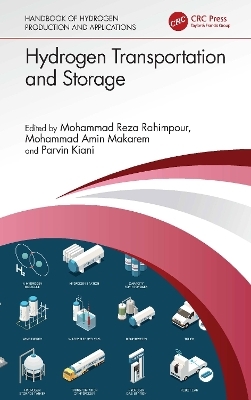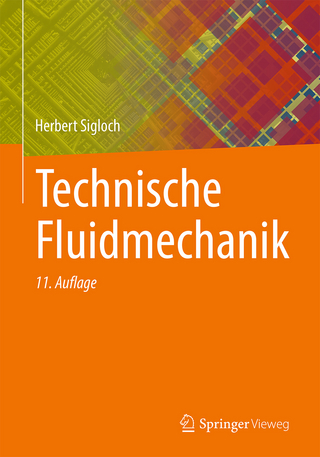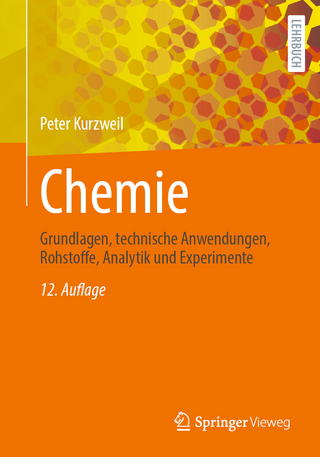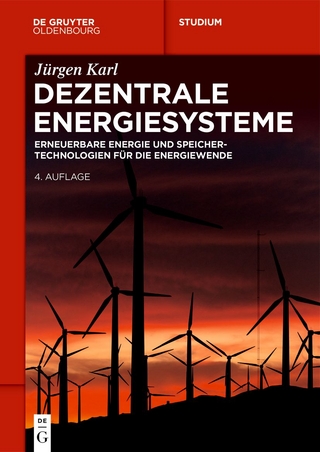
Hydrogen Transportation and Storage
CRC Press (Verlag)
978-1-032-46610-1 (ISBN)
The success of hydrogen energy markets depends on developing efficient hydrogen storage and transportation methods. Hydrogen may be stored in various ways, including compression, liquefaction, adsorption, hydrides, and reformed fuels. Hydrogen’s application, transport method, storage time, and other factors all have an impact on the technology choices available for its long‑term storage. This book comprehensively reviews hydrogen storage and transportation technologies along with related safety hazards and challenges.
Introduces hydrogen storage and transportation materials and standards
Includes miscellaneous hydrogen storage methods
Covers different hydrogen transportation technologies
Comprehensively describes hydrogen storage and transportation safety considerations
Provides economic assessments and environmental challenges related to hydrogen storage and transportation
Part of the multivolume Handbook of Hydrogen Production and Applications, this standalone book guides researchers and academics in chemical, environmental, energy, and related areas of engineering interested in development and implementation of hydrogen production technologies.
Mohammad Reza Rahimpour is a Distinguished Professor of Chemical Engineering at Shiraz University, Iran. He earned a PhD in chemical engineering at Shiraz University, in collaboration with the University of Sydney, Australia, in 1988. He leads a pioneering research group specializing in fuel processing technology, with a particular focus on the catalytic conversion of both fossil fuels, such as natural gas, and renewable fuels, like bio‑oils derived from lignin, into valuable energy sources. Throughout his academic career, Dr. Rahimpour has specialized in hydrogen production technologies, including steam methane reforming, water electrolysis, photocatalytic hydrogen production, and hydrogen production from both renewable sources and fossil fuels. His extensive expertise and innovative research significantly contribute to advancements in hydrogen production and its practical applications. Mohammad Amin Makarem earned a PhD in chemical engineering at Shiraz University. His research interests include gas separation and purification, nanofluids, microfluidics, catalyst synthesis, reactor design, and green energy. Parvin Kiani earned a degree in chemical engineering at Shiraz University. Her research has focused on gas separation, clean energy, and catalyst synthesis.
Section I: An Overview of Hydrogen Storage and Transportation Technologies. 1. Introduction to Hydrogen Storage, Transportation, and Distribution Technologies and Challenges. 2. Engineering Properties of Hydrogen Storage Materials. Section II: Hydrogen Storage and Transportation Methods. 3. Liquid Hydrogen Carriers. 4. Pressurized Gaseous Hydrogen Storage. 5. Low‑Temperature Liquefaction Hydrogen Storage. 6. Carbonaceous Materials for Hydrogen Storage. 7. Glass Microspheres for Hydrogen Storage. 8. Metal‑Organic Frameworks (MOF) for Hydrogen Storage. 9. Pipelines for Hydrogen Transportation. 10. Cryogenic Liquid Tankers for Hydrogen Transportation. Section III: Hydrogen Storage and Transportation Safety Considerations. 11. Prevention of Hydrogen Pipeline Cracking and Leakage. 12. Delayed Hydrogen Ignition and Explosion. 13. Liquid Hydrogen Release from Pressurized and Non‑pressurized Tanks.
| Erscheinungsdatum | 25.09.2024 |
|---|---|
| Zusatzinfo | 27 Tables, black and white; 16 Line drawings, black and white; 36 Halftones, black and white; 52 Illustrations, black and white |
| Verlagsort | London |
| Sprache | englisch |
| Maße | 156 x 234 mm |
| Gewicht | 680 g |
| Themenwelt | Naturwissenschaften ► Chemie ► Technische Chemie |
| Naturwissenschaften ► Physik / Astronomie | |
| Technik ► Elektrotechnik / Energietechnik | |
| Technik ► Umwelttechnik / Biotechnologie | |
| ISBN-10 | 1-032-46610-3 / 1032466103 |
| ISBN-13 | 978-1-032-46610-1 / 9781032466101 |
| Zustand | Neuware |
| Informationen gemäß Produktsicherheitsverordnung (GPSR) | |
| Haben Sie eine Frage zum Produkt? |
aus dem Bereich


